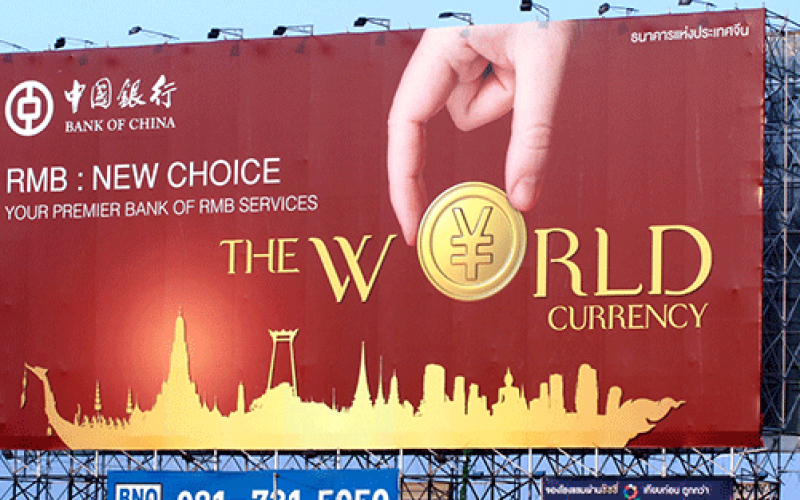Can the ‘petroyuan’ really spur de-dollarisation?
 They’re calling it the “petroyuan”. Those are the oil futures contracts denominated in yuan (renminbi), and launched on the Shanghai International Energy Exchange on March 26 for foreigners to directly buy and sell.
They’re calling it the “petroyuan”. Those are the oil futures contracts denominated in yuan (renminbi), and launched on the Shanghai International Energy Exchange on March 26 for foreigners to directly buy and sell.
Not too long ago, John Mathews and Mark Selden wrote in The Asia-Pacific Journal that China’s futures contracts have established themselves in the months since the launch and that they are being taken seriously by multinational commodity traders such as Glencore. This means, they said, the renminbi could be brought to “the core of global commodity markets”.
Mr Mathews and Mr Selden argued in a subsequent piece for Project Syndicate, that these developments could mean the “progressive de-dollarization of the oil market”.
Renminbi-based oil trading, they pointed out, is finding takers at a sensitive time. China and other countries are faced with Donald Trump’s swingeing tariffs and arbitrary and frequent sanctions. They may, consequently, be willing to use currencies other than the US dollar to trade. The greenback then, “could face an unprecedented challenge to its hegemony. It may, in the near future, no longer be seen as the anchor of the international monetary system, bringing to an end to what Valéry Giscard d’Estaing famously called the ‘exorbitant privilege’ enjoyed by the US as a result of the dollar’s centrality in international trade.”
How would this happen when China has not indicated when (or even if) it will liberalize its financial markets and its capital account, allowing foreigners to easily buy Chinese stocks and bonds and to move money in and out of the country as needed?
Mr Mathews and Mr Selden seem pretty convinced the internationalisation of the renminbi is well on its way. Their opinion cannot be discounted. Mr Mathews is professor emeritus in the business and economics faculty at Sydney’s Macquarie University. Mr Selden is a senior research associate in Cornell University’s East Asia Program, and editor of ‘The Asia-Pacific Journal: Japan Focus.’
The argument seems to hinge on Russia and Iran’s current oil sales to China and acceptance of renminbi payments in return. Additionally, there is China’s status as the world’s largest oil importer – it overtook the US last year. That does lend weight to the idea of the “petroyuan”. But beyond that, at least right now, the outlook for de-dollarisation is unclear.

